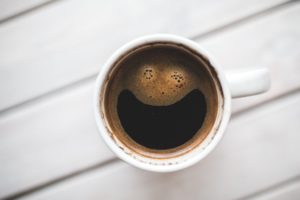Treatment-resistant depression (TRD) or treatment-refractory depression is a term used to describe cases of depression that do not respond adequately to adequate courses of at least two antidepressant medications. Some factors that contribute to inadequate recovery are: misdiagnosis, insufficient dosage of medication, concurrent psychiatric disorders, history of concussion, and substance abuse. In general, treatment-refractory states are seen in situations of “high comorbidity” (when more than one problem is occurring at the same time in the same person).
About half of the patients with depression do not achieve “total remission” of symptoms. For patients with inadequate psychiatric input (for instance those people being treated by a primary care provider) the response rate is even more dismal – perhaps ¼ of the patients achieve “total remission”. The statistics for patients with chronic physical pain are even more dismal.
Even in specialty clinics, total remission is an elusive goal. While clarifying diagnosis is a surefire way to pursue a more effective treatment, some patients don’t get enough relief to return to a satisfying life. (They remain disabled by symptoms, or bedeviled by suffering, and might require destructive doses of medication to mitigate their suffering).
Diagnosis plays an important part in treatment planning. We have learned to pay close attention to the hidden complexities of fragile lives and how experience can actually alter the way genes are activated/expressed – this is the epigenetic effect – it is relevant to any kind of adversity one might encounter.
With the everyday use of Interferon we were finally able to see how the immune system could interact with or even harm the nervous system – the recognition that a mundane case of “the flu” can mimic the symptoms of depression can teach much about how pro-inflammatory cytokines can harm mood or exacerbate “physical” pain such as arthritis or in vascular constriction or nerve compression/neuropathy. A recent study showed that a TNF inhibitor could lift mood in folk suffering with inflammatory illness and co-morbid major depression.
The monoamine hypothesis took 50 years to de-bunk and is no longer a logical starting point in treating psychiatric illness. At this point we can address more pertinent aspects of the nervous system like GABA receptor populations and glutamatergic pathways. Chronobiological manipulation with sleep therapy, wake therapy, and even light therapy while asleep are potent adjunctive interventions and are especially effective in relapse prevention. Neuromodulation has a very important place in the fight against TRD. One can choose from ECT, (r)TMS, tES, VNS or DBS. The mechanism of action for the brain stimulation techniques is hard to discern, but deep brain stimulation (DBS) has been shown to reverse TRD, especially when stimulating the region of the subgenual anterior cingulate. Spinal Cord Stimulation is a commonly used intervention for intractable pain but it does not seem to cause “recovery” or “remission from disability”.
We are dedicated to the effective diagnosis and comprehensive treatment of complex Neuropsychiatric disorders of adults and children. TNC houses a multidisciplinary group of specialists, well-known as a regional, national and international resource for special evaluation and treatment. Our cutting-edge services include a large selection of diagnostic and treatment procedures. At TNC, our unique partnership with PathFinder Brain SPECT Imaging and the Hyperbaric Centers of Chicago (both located in our extended office complex) allow us to offer our patients the most elaborate diagnosis and treatment options.
One type of unique treatment we offer on-site is a ground-breaking and patented therapy, utilizing the synergistic effects of TMS (Transcranial Magnetic Stimulation) and infused ketamine, concurrently administered in one session. The following points can be made about this combination therapy:
- Found to be effective in patients resistant to other therapeutic interventions.
- Through modification of the central nervous system, the depression, pain, and anxiety recede so the patient can regain a quality of life.
- Especially effective in cases of substance abuse.
- Faster relief from suffering and return to normal life. In many cases, people experience recovery in days or weeks, rather than months.
- The remission can last for very long intervals, lasting for years after completion of a series of treatments.
- A minimally invasive, and very safe procedure which does not interfere with other therapeutic interventions.
- On-site anesthesia team specializes in administration of Combination Treatment and numerous interventional pain procedures.
- This treatment is grounded in our vast experience with (r)TMS acquired while treating more patients with (r)TMS in the USA than any other provider over the last 17 years.
Pain affects not only the person, but their loved ones as well. It can deteriorate a person’s judgment, and make that person restless or cranky. At some point, the change in personality might cause a persons’ support system to fail. This would leave people alone during their darkest time. We recognize that building a healthy relationship with our patients can be just as important as providing physical treatment. Pain can be “local” (i.e. a broken bone), “central” (phantom limb, depression), or “mixed” (local pain that “morphs” into CRPS). Autoimmune diseases and other inflammatory illnesses are notorious for mixed pain syndromes. Mixed pain requires specialized diagnosis and treatment. Common causes include:
- RSD/CRPS (Reflex Sympathetic Dystrophy/Complex Regional Pain Syndrome/causalgia).
- Rheumatoid Arthritis
- Systemic Lupus Erythematosus
- Lyme and Other Post-Infection Pain









